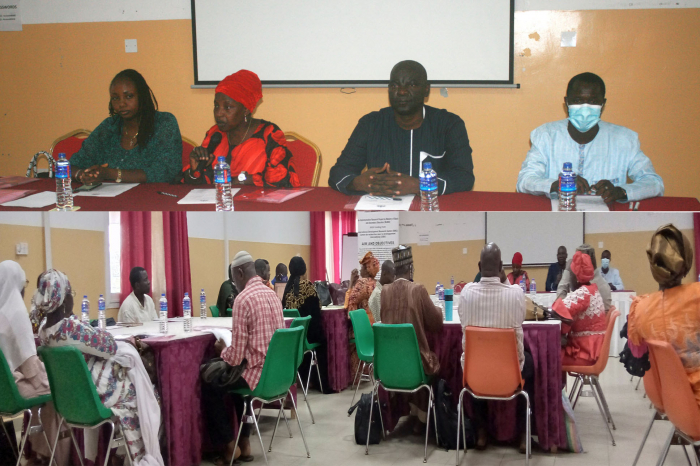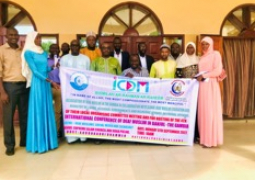
The forum attracted different stakeholders from Regional One Education office, Ministry of Basic and Secondary Education, gender unit, Madarasaa unit, Non-formal Education, Curriculum Research, Evaluation and Development Directorate (CREDD), Project Coordination Unit (PCU), Standard and Quality Assurance Directorate (SQAD), Science and Technology Education Directorate (STED), in-service Training Unit and The Gambia College.
The weeklong event seeks to deliberate on areas of intervention to create and develop valued activities for CHE in schools across the country based on the Comprehensive Health Education research findings and recommendations from the previous engagements with different stakeholders in Banjul and Kanifing Municipal Councils.
Strengthening Access to Quality Comprehensive Health Education in The Gambia is an implementation research project conducted by the Ministry of Basic and Secondary Education with funding from International Development Research Center (IDRC), Canada.
Addressing the gathering, Momodou Jeng, director of CREDD said that the five year research project involves ensuring Comprehensive Health Education.
The research findings, he added, have revealed that most of the children are getting into some complications without knowing where and from whom they can seek advice, authentic and relevant information.
“Therefore, there is urgent need for intervention to brainstorm on the needy to package in the immediate intervention packages for our students and children to ‘Strengthening Access to Quality Comprehensive Health Education in The Gambia,’” he added.
Ms Fatou Dally Bittaye, harped on the importance of the co-creational forum for better implementation and to strengthen the work of MoBSE.
In his presentation, Dr Mat Lowe, a co-researcher and resource person, highlighted the aims and objective of the project, saying the overall aim of the study is to understand the underlying factors that affect the implementation of comprehensive health education (CHE) for adolescents in and out of school.
The methodological approach, he said, was divided into three phases, adding that the package of interventions include training of teachers on CHE based on the study findings, establish collaborative agreement with teachers and the school of education at the Gambia College to enlist their support for the project and community engagement fora and discussion sessions on CHE.
Ms Phebian Ina Grant-Sagnia, principal investigator of the project reiterated that the project targets in and out-of-school adolescents in The Gambia
She maintained that comprehensive sexuality education is an issue that is affecting the youth, which task is not just only for schools, but parents too have to partake.





